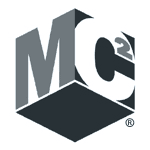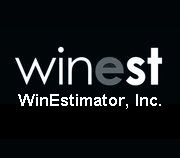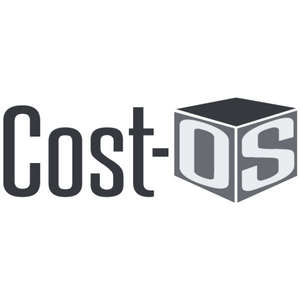Are you Forgetting These Two Things in Your Software Evaluation?
The typical software evaluation process is pretty standard across industries. Though there are differences in the approach, when considering new software, most companies follow a standardized set of best practices to make sure you get a return on your investment.
A standard template evaluation of new software consists of:
- Defining your why—identifying the problems you need solving
- Creating a list of must-have and nice-to-have features
- Establishing your budget
- Forming an evaluation team of decision-makers
- Setting up timelines for implementation and training
When your preconstruction team first starts looking for a new estimating tool, it’s easy to get caught up in the obvious things as you begin filtering through programs. For example, most teams want to be able to consolidate two or three tools into one platform; they’ll likely also want integrated 2D takeoff capabilities, comparison reporting, and unlimited sorting. And while these features are definitely important, there are a lot of other things you want to look for as you make your wish list—qualities that may not seem that critical, but that can have a huge impact on whether or not implementing a new tool is successful.
Whether brand new or as a replacement for old tools, committing to new software takes time. There is a lot to consider—collecting data, phasing out the old software, establishing new processes, implementation, training, getting buy-in. It’s easy to get caught up in the weeds of it all. However, there are two serious considerations usually lacking from the general list—aligning with the software vendor and having a solid implementation team.
It’s not often that a customized implementation plan and schedule are included in the price of the software. Most software is downloaded and you’re on your own…if you’re lucky, your software provider will have some online video tutorials. Once the demos are done and you’ve signed on the dotted line, there’s no telling what type of support and training you’ll get.
You may not be aware, but there is a huge industry of aftermarket specialists who charge for software training because many vendors don’t include extensive training in their prices. (We know. With the price you’re paying, you’d think training would just come with it. But nope.)
What this boils down to is asking the right questions of the software vendor to ensure you are set up for success and we have two that will make or break your decision.
Question 1: How Do you Receive Feedback?
One of the first things to look out for? A vendor that’s not only willing but eager to hear and implement your feedback. Every tool is created by a software company, and they’re not always the same in their approach. You don’t want to sign a contract for a tool that hasn’t changed in the past five years since it’s been out, with a support team that amounts to just a couple of “how-to” PDFs.
On the other end of the spectrum, you also don’t want to purchase a tool whose only real updates are just bug fixes. You want to choose a platform backed by a vendor who is always willing to grow and adapt with you, and who proactively reaches out to you for features that you’d like to see, rather than just waiting for you to send in another support ticket.
For example, when DESTINI Estimator customer PARIC Corporation began struggling to keep up with software updates for a very large estimating team, they approached Beck Technology with the idea to develop a cloud-hosted version of the estimating software as opposed to only offering something on-prem.
PARIC’s Estimating Technology Manager said, “PARIC reached out to Beck Tech in collaboration to make this vision a reality and we have been utilizing a cloud-hosted Estimator for over a year.”
A vendor who is a true partner has an established avenue to receive feedback from users and then implements suggested features and needed changes is an invaluable benefit when choosing a software vendor.
Question 2: Do you Have a Good Implementation Team?
The reality of moving to a new estimating tool is that, while it may be necessary and have a thousand long-term benefits for your team, there’s always going to be an adjustment process. You have to train your entire team to alter the way they do things around this new software, and that’s always going to take a fair amount of time no matter what tool you choose. But you don’t need to make it harder than it is. You want to be able to have a strong implementation team that will help walk you through reports and give you training sessions tailored to your company’s needs.
And the easiest way to find out if the vendor you’re evaluating has these qualities? Ask to talk to their current clients. Don’t be afraid to get their contact information and ask them for their honest and unfiltered opinions. If the vendor truly believes in their product, they won’t be afraid to let you hear from the people who are using the software.
Beck Technology, a company born from the construction industry, not only understands the pressures preconstruction teams face, but the hard work involved in switching or adopting new technologies, so we have a full implementation team dedicated to customizing your implementation and training plan which comes at no extra cost.
When The Korte Company started looking at new construction estimating software, DESTINI Estimator was a top choice. During their evaluation phase, Beck Technology provided a hands-on, intensive exploration. Korte’s Chief Operating Officer says, “One of our business requirements was to gain a support system that would listen, change, and grow with us, providing the product that will make us the most efficient we can be as technologies and systems change.”
One of their final deciding factors was the time, attention, and collaborative effort Beck Technology’s implementation team put into Korte’s exploration of DESTINI Estimator. Even before Korte agreed to purchase the software, Beck Tech planned a detailed scope of work and schedule for implementation and training for the design-build firm. A senior estimator at Korte says, “Beck Technology’s approach to implementation was one of our major deciding factors in choosing DESTINI Estimator.”
A trusted vendor who values building a relationship with their customers and works collaboratively to make sure each customer is set up for immediate and future success is something you should add to your software evaluation checklist.
If you’re ready to see how Beck Technology can improve your preconstruction data lifecycle, click the button below to schedule a demo of DESTINI Estimator preconstruction software.

-1.png?width=112&height=112&name=image%20(4)-1.png)















